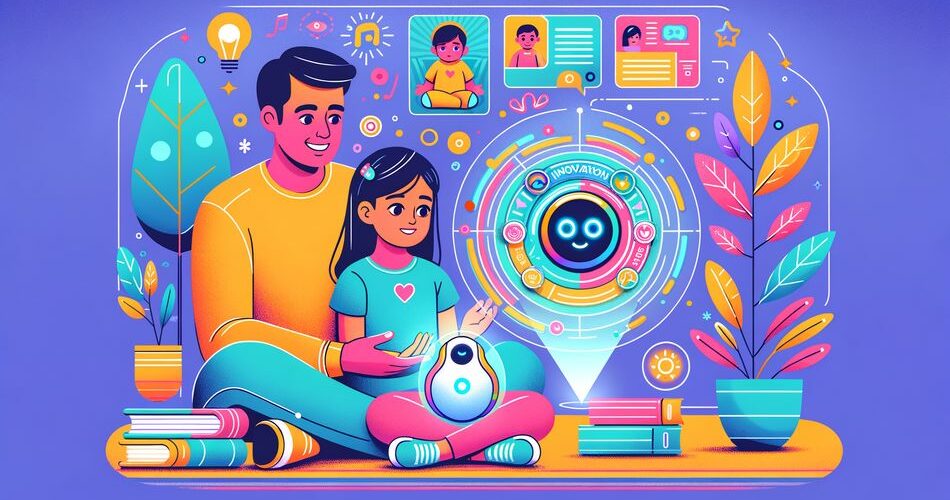Introduction
In recent years, the role of artificial intelligence (AI) has expanded beyond industrial applications and into our daily lives, including the realm of parenting. As modern technology advances, AI tools are becoming more sophisticated and accessible, offering parents new ways to manage childcare and foster child development. In this blog post, we will explore how AI is redefining modern parenting, its benefits, and potential challenges, all while providing you expert tips to navigate this evolving landscape.
AI-Powered Baby Monitors: The New Standard
One of the earliest and most impactful integrations of AI in parenting comes in the form of AI-powered baby monitors. Unlike traditional monitors that merely transmit sound or video, AI baby monitors utilize advanced algorithms to analyze data in real time. These monitors can track vital signs such as breathing, heart rate, and sleep patterns. They offer actionable insights and timely alerts directly to your smartphone, ensuring that you are immediately aware of any potential issues.
For example, AI monitors can alert parents if a baby’s sleep is disrupted, if irregular breathing patterns are detected, or even if the baby rolls over into an unsafe position. These intelligent systems can significantly reduce parental anxiety and provide peace of mind by offering a virtual safety net around the clock.
Smart Toys and Educational Tools
Smart toys equipped with AI are rapidly gaining popularity in the parenting world. These are not just any ordinary toys; they are interactive educational tools that adapt their responses based on the child’s actions and learning pace. For instance, AI-driven reading companions can read stories aloud, ask thought-provoking questions, and even gauge the child’s emotional responses to tailor the storytelling experience.
Additionally, AI-driven educational apps can help children learn languages, mathematics, and science through engaging, interactive challenges. They track the progress and adjust the difficulty level accordingly, ensuring that each learning experience is unique and personalized. This adaptability helps in maintaining the child’s interest and enthusiasm for learning.
Virtual Assistants as Parenting Aides
Voice-activated virtual assistants like Amazon Alexa, Google Assistant, and Apple’s Siri are also proving to be valuable tools for modern parents. Beyond setting reminders or playing nursery rhymes, these virtual assistants can perform multiple functions that enhance daily routines. From calming a fussy baby with ambient sounds to helping older children with homework, their range of applications is vast.
Moreover, parents can utilize these assistants to organize family schedules, set up shopping lists, and even find quick parenting tips or child development advice. This hands-free support can be a lifesaver, especially when juggling multiple parenting responsibilities.
Intelligent Parenting Communities
Online forums and communities have long been a resource for parents seeking advice and support. However, AI is taking these communities to the next level by curating personalized content and recommendations. AI algorithms analyze your interactions, questions, and preferences to suggest relevant articles, videos, and discussions that align with your specific parenting needs.
These intelligent platforms not only connect you with like-minded parents but also with experts in child development, offering a more interactive and tailored experience. You can receive real-time advice on various topics, from breastfeeding tips to adolescent behavioral strategies, all facilitated by AI’s capabilities to understand and anticipate your needs.
Challenges and Ethical Considerations
While the advantages of integrating AI into parenting are numerous, it is essential to be aware of the challenges and ethical considerations. Privacy concerns are at the forefront, as AI systems often collect and analyze personal data to function effectively. Parents need to ensure that any AI-driven devices or applications they use comply with stringent data protection and privacy standards.
Additionally, there is a risk of over-reliance on AI tools, which may inadvertently impact the development of critical parenting skills. It is crucial to strike a balance between leveraging AI for support and maintaining active, mindful parenting practices.
Conclusion
In conclusion, AI has a transformative potential in the realm of modern parenting. From AI-powered baby monitors and smart educational toys to virtual assistants and intelligent communities, these technologies offer substantial benefits in terms of convenience, safety, and personalized child development. However, it is equally important to be mindful of the challenges and ethical considerations to make informed decisions about integrating AI into your parenting journey.
As AI continues to evolve, it will undoubtedly offer more innovative solutions to support parents and children alike. At Growing Together, we aim to provide you with the latest insights, tips, and resources to navigate this exciting new frontier in parenting. Whether you are embracing AI tools or seeking traditional advice, we are here to support your family every step of the way.

